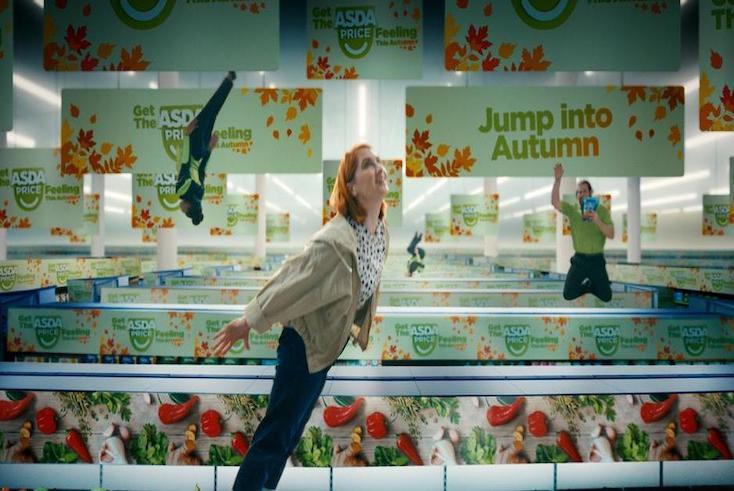Barbara and Gary’s small ‘p’ for purpose, plus Asda’s slow start

Dominic Mills looks at brands’ new approach to purpose and wonders how long Havas will last as Asda’s new dance partner
I have no empirical evidence to prove it, but I get the sense that there is a move away from big “P” purpose to what I call, small ‘p’ purpose.
Less saving the world from evil (Google, at least in its original incarnation), no more peace to all mankind (Pepsi), less fixing all society’s injustices and inequalities (Gillette and others). Plus, don’t get me started on some of the sermonising and platitudes of much of the BLM activity.
Of course, it’s not completely dead: here’s the agenda of a US conference later this week, full of all the usual hype and nonsense.
There were many things that really cheesed me off about these efforts: no definable or measurable goal; too much mouth, not much in the way of trousers; a sense of finger-pointing; and total lack of accountability.
This piece by Paul Burke — read the second section — looking at Sainsbury’s self-described ‘commitment’ to the LGBT+ community, brilliantly exposes the sheer vacuousness of many brands’ activities.
The thing that really irked me though was the way the onus for tacking and solving these problems was effectively shifted on to the consumer. It was as if Sainsbury’s said: “Oi consumer, we’ve done our bit just by pointing out the problem. Over to you to do something about it. See ya.”
Perhaps it realised how ludicrous it looked. Or perhaps it was the pandemic, which threw up real problems, many closer to home, definable and visible, problems that brands realised they could do something about as opposed to lecture on.
I don’t care either way; I’m just happy it’s changing.
A case in point, which I noticed last week via this press ad (it’s been going since June), is Sky’s befriending line, run in conjunction with Age UK and which aims to ease loneliness amongst older people.

The ad features former barmaid Barbara and Sky contact-centre operator Gary whose weekly chats have given birth to a friendship.
Old-age loneliness has always been a big problem, but made infinitely worse by the pandemic when many were completely cut off.
I saw this first-hand when I stood behind a woman in the vaccination queue. She hadn’t been out for 14 months. At first she didn’t want to talk; then I could hardly stop her.
Nearly all brands are rooted in community, (which doesn’t have to be geographical) and it seems to me the sweet spot for small ‘p’ purpose lives at the intersection of three things.
One, is there a clearly defined community with which the brand has a connection and to which it can speak (figuratively and literally)?
Two, relevance, by which whether the problem is both real and one the brand can legitimately address.
And three, credibility — does it have the capability to do something about the problem?
For me, Sky answers all three questions. I like the fact that — other than this ad (with which I have no problem) — it’s not making a big deal proclaiming its virtue. This is just a thing Sky does, not an all-encompassing upper-case P word thing. That’s as it should be.
That Asda feeling — a bit weird
Normally, a new Asda campaign would be greeted by a collective shrug of indifference by the industry, which perhaps isn’t surprising when you consider how many times Asda has changed agency in just over a decade: Publicis to Saatchi to VCCP to Saatchi to AMV to Havas.
The agency hardly has the time to get to grips with the business before it is whipped out from under its feet.
But its new campaign deserves a closer look. For two reasons…
One, it’s the first by Havas since it won the business in May, a victory which underlines the agency’s renaissance. Indeed, it may also test it since, if you’re not used to them, large retailers are notoriously hard to come to terms with.
And two, it’s the first campaign since Asda was bought out of Walmart late last year by the Issa brothers, a pair of northern entrepreneurs who have made their money in petrol retailing, and who are backed by private equity.
So far, the most exciting news to come out of Asda since it came under new ownership, aside from the departure of various Asda/Walmart veterans including the CEO, is that it plans to open 300 stores on, guess where….yes, forecourts.
Both parties, therefore, have a lot riding on this campaign.
Asda’s market share, according to Kantar, is currently 14.2%, up 0.1 percentage points since June but down from 14.8% in March this year and 14.3% at the end of December 2020. Volatile, you might say charitably.
The ad itself is, well, a little bit surreal, verging on the barking.
A family enters a store, and is greeted by an Asda colleagues who cartwheels away to the backing of Boston’s More than A Feeling.
The family bunny hops around the store thrilled, I think, by the low prices. Gone is the ‘That’s Asda price’ slogan, replaced by…ta da!…’Get the Asda price feeling’.
It doesn’t really feel like the game-changer I was expecting, and indeed there doesn’t seem to be much new thinking around.
‘When our customers talk about ‘Asda price’ “, says chief customer officer Preyash Thakrar, “it goes without saying they are talking about great value….[but] also about great service, great-quality products and great colleagues.”
Which is pretty much what all Asda’s peers say.
Still, I wouldn’t worry too much about it. In my experience, a new agency working on a supermarket rarely nails it first time. That was certainly true of Sainsbury’s/W&K and Tesco/BBH.
The difference is, judging by its track record, Asda doesn’t waste too much time before looking for another dance partner.




